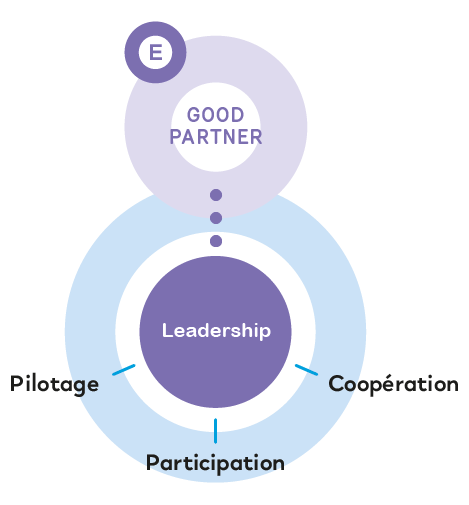
As mobility is a subject of general interest, the coordination of actions will follow in the wake of concertation. The Region will strengthen its role as a conductor to attain this shared ambition:
- By effectively piloting the implementation of the actions of the Good Move plan and defining the roles of organisations and operators (private and public) so that they contribute to the success of the Good Move plan;
- By favouring decompartmentalised cooperation between municipalities, the neighbouring regions, the federal government, Europe and the public and private stakeholders;
- By opting for a participatory and citizen implementation of the actions of the plan.
Beliris, the Bouwmeesterarchitect, Brulocalis, Brussels Economy and Employment, Brussels Environment, Brussels Taxation, Brussels Local Authorities, Brussels Prevention & Security, citydev.brussels, the Brussels municipalities (through their Municipal Mobility Plan), BISA, Infrabel, Innoviris, the Mobiliteit en Openbare Werken Department, parking.brussels, perspective.brussels, the Port of Brussels, the Wallonia Public Service, the Federal Public Service Mobility and Transport, SNCB, the Brussels Regional Public Service, the STIB, the European Union (ERDF), urban.brussels, the Vervoerregio Vlaamse Rand and many other stakeholders are involved in the implementation of the Good Move plan .
The Region allows many mobility stakeholders in Brussels (regional administration, municipalities, public and private transport operators, users, trade unions, employers, etc.) to meet on a regular basis within a advisory body called the Commission Régionale de Mobilité - Gewestelijke Mobiliteitscommissie. More info on the French and Dutch versions of this page.
Brussels Mobility has developed technical guides to assist project managers in the development of public space.
See also: The Guide to Brussels Public Space, ]pyblik[ for designers responsible for the development of public spaces.
A network of mobility advisors
Brussels Mobility, in partnership with Brulocalis (Association of the City and Municipalities of the Brussels-Capital Region), proposes structuring the mobility advisors (CeMa) in a network in order to:
- Strengthen links between mobility professionals,
- Encourage the pooling and sharing of knowledge and skills,
- Provide ongoing training,
- Offer different services around the basic training courses, such as training and working groups on additional regulations, heavy goods vehicles, trade and mobility.
In addition, Brussels Mobility subsidises tools for mobility advisors:
- The Moniteur de la Mobilité: Brussels mobility magazine, published three times a year;
- The Cahier du moniteur de la mobilité which provides clarification on certain topics (construction site management, school travel plans, parking, etc.)
